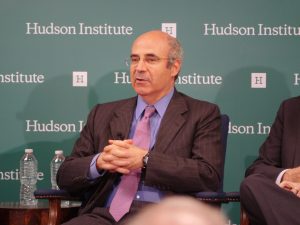On December 7, a subcommittee of the Australian Parliament’s Joint Standing Committee on Foreign Affairs, Defence and Trade tabled a report recommending that Australia pass “stand alone targeted sanctions legislation to address human rights violations and corruption,” fashioned after the United States’ 2012 Russia and Moldova Jackson-Vanik Repeal and Sergei Magnitsky Rule of Law Accountability Act, colloquially known as Global Magnitsky Act. Among the recommendations in the Joint Standing Committee’s Human Rights Subcommittee report is that “the sanctions include visa/travel restrictions, limit access to assets, and restrict access to Australia’s financial systems.”
The U.S. law is named after Sergei Magnitsky, a 37-year old Russian lawyer and tax advisor who died in police custody in Moscow, after being jailed for investigating an instance of corruption linked to the Kremlin. Under the provisions of this U.S. law, whose geographical scope was expanded beyond Russia in 2016, the American government is entitled to freeze assets of and take certain other measures against violators of human rights. The United Kingdom passed a version of the Magnitsky Act in 2018; the European Union currently is contemplating legislation along similar lines.
In the recent months, the U.S. has pursued Lebanese, Ugandan and Gambian individuals under the provisions of the Act. But most notably, the Trump administration has also used the Act to target Chinese individuals and entities for their role in human rights violations in Xinjiang and participation in an infrastructure project in Cambodia that acted against the interests of the local population.
Commenting on the normative significance of the Global Magnitsky Act in an American Interest article in 2012, Lilia Shevtsova and David Kramer noted that the Act “signifies an entirely different format of Western influence. It does not intend to influence the societies that live under authoritarian regimes (in most cases, these societies no longer need lectures on building democracy); it is aimed instead at the elites who use Western countries to secure their interests and their authoritarian regimes.” And it is precisely in this way that Australia’s adoption of a Global Magnitsky Act-type law stands to push back against many authoritarian states — principally among them, China – while avoiding the charge that it seeks to remake these regimes in its own image.
ANZ Private Bank, a unit of Oceania banking giant ANZ, notes that in 2018, Australia was at the top of the list of countries high net worth individuals flock to as immigration and investment destinations, with the country remaining a favored destination for rich Chinese. As the bank quotes its head of the international segment as saying, rich Chinese migrants “want to become ‘global citizens’ where they acquire a second citizenship or second residency elsewhere to diversify their wealth and their asset base outside of China. They usually retain a footing back in their home country.”
While one expects that the vast majority of Chinese migrants to, and investors in, Australia are unlikely to be connected to human rights violations committed by the Chinese Communist Party (CCP) in Xinjiang and elsewhere, it is equally plausible that some perpetrators of such acts may indeed seek to engage with Australia, in terms of investing or even seeking a second residence in that country. Australian legislation fashioned after the Global Magnitsky act will not only prevent financial and physical access of CCP-linked human rights violators to Australia, but could also potentially act as a deterrent for such actors – or, at the very least, send a signal to China that such actors are likely to be imperiled if they seek to leverage Australia for their gains.
The Sydney Morning Herald quoted billionaire-turned-activist Bill Browder, who pushed for the 2012 Magnitsky Act in the United States, as saying “There are obvious officials in China who should be sanctioned for Xinjiang. Australia should sanction Chinese officials but it shouldn’t by itself… It should do so in conjunction with Britain, Canada and the United States.”
The new legislation is scheduled to be introduced in the Australian parliament next year. In 2018, Australia passed a set of national security laws that seek to push back against Chinese foreign interference in Australia’s domestic affairs. An Australian targeted sanctions law will serve as a further valuable addition to Canberra’s legal toolkit in shaping CCP behavior.

































